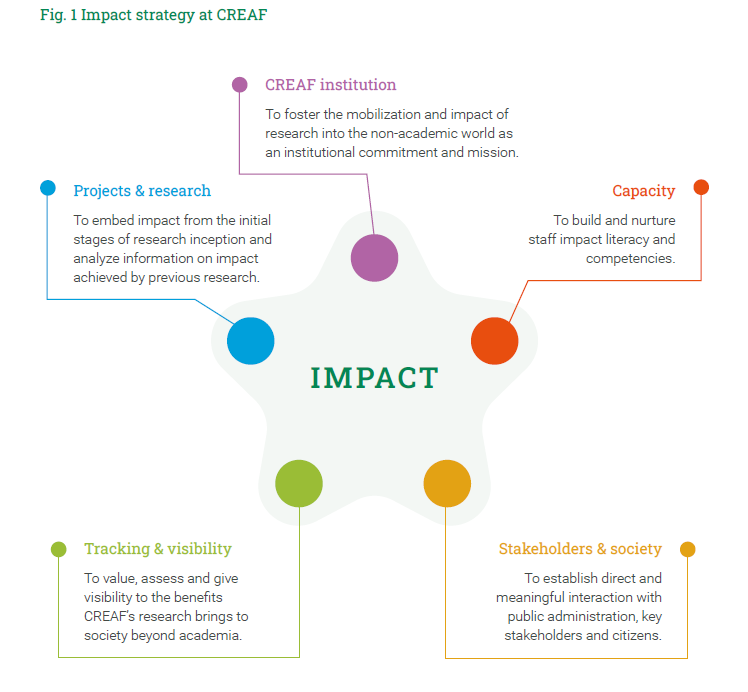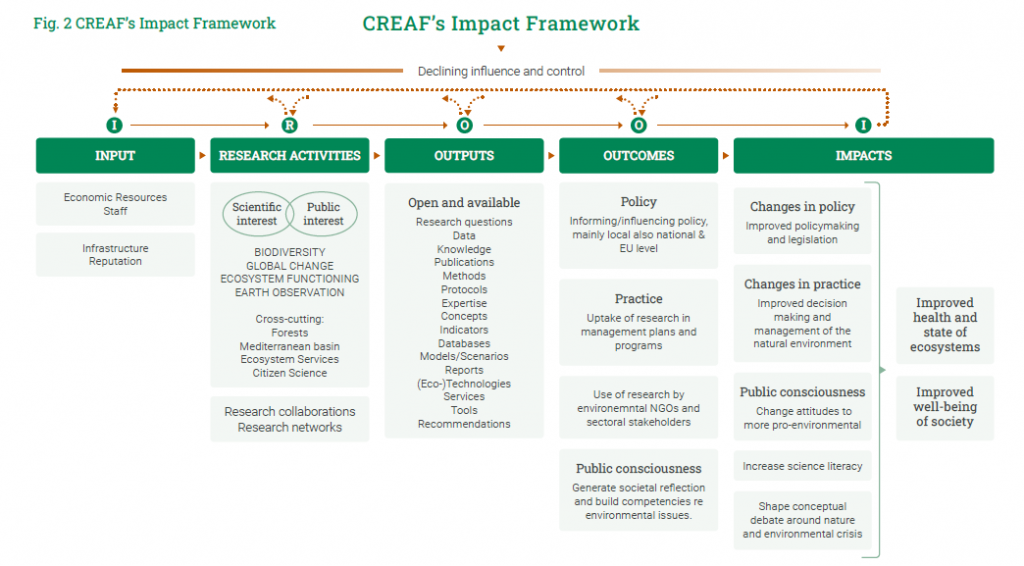The journey towards the societal impact of CREAF’s research
Today we delve into the world of CREAF to explain how we have decided to reflect on our research and everything we have learned so far and to see what impact our research has had on society over more than 35 years. Nowadays, the socio-environmental challenges we must face are increasingly urgent, and CREAF’s climate change and research on the environment cannot ignore this reality. We need to understand how our research has served to improve policy development, social awareness, and territorial management, and look at how to reinforce this in the future and with an even wider scope. If CREAF’s research can contribute to transforming the world in a positive way, may this contribution be not only possible, but also agile and powerful.

We need to understand how our research has served to improve policy development, social awareness, and territorial management, and look at how to reinforce this in the future and with an even wider scope.
Anabel Sánchez, CREAF Impact officer
In this sense, the new societal impact framework of CREAF research, in charge of Anabel Sánchez, has begun to move and explore what role our knowledge and the information and data we generate play in the complex network of environmental problems. So, read on to discover CREAF’s societal impact strategy that has seen the light of day this 2023.
Understanding CREAF's mission
CREAF strives for generating positive impact, but also intends to understand the possible undesirable impacts of research.
Imagine a group of CREAF people with a shared mission: to decode the secrets of nature and find solutions for the most difficult environmental challenges. From climate change to urbanization, including biological invasions. These challenges don’t just affect ecosystems: they threaten the essential contributions that nature provides to people’s well-being. Can CREAF research fulfil this mission? CREAF’s new societal impact strategy aims to understand how and when our research, research processes and results we produce contribute to these solutions, how we manage to involve people, raise their awareness or how to enhance the skills of CREAF’s staff to engage in meaningful connections with those who help us make it possible. The aim is to show that our research has invaluable societal impacts.
What does impact mean at CREAF
Impact includes any kind of change (big or small, local or global, intended or unintended, instrumental or conceptual) that we can show (see, evidence, measure), beyond academia (affecting society, the economy and the environment in a positive way) that occur because of the contribution of research.
Impact is ultimately about relationships and connecting academic research with real-world benefits.
Anabel Sánchez, CREAF Impact officer
CREAF values and acknowledges the importance of all the diversity of essential elements and required efforts and collaborations along the process of generating impact without which the intended benefits could not be achieved. CREAF strives for generating positive impact, but also intends to understand the possible undesirable impacts of research.

The impact framework
To do this, CREAF has developed an impact framework. A collective exercise based on a logic model, where paths are marked towards impact, from research to the expected changes in society, policy, management practices of the natural environment, among others. This comprehensive model serves as a guide for the promotion, management, and evaluation of the impact of the CREAF’s research..

The key elements of CREAF's approach
As a central element, we find CREAF’s firm commitment to promote quality bi-directional interactions with the stakeholders involved, with the agents of change, and with the rest of the non-academic world. This commitment will contribute to improve the relevance and applicability of research results and will maximize impact across key domains: policy, practice, and the wider society.
This commitment will contribute to improve the relevance and applicability of research results and will maximize impact across key domains: policy, practice, and the wider society.
Building an impact culture
Finally, the implementation of an impact framework is an essential pillar to foster a culture of impact within CREAF. This impact literacy aspires to cultivate a shared understanding of impact among all staff, establishing a common language, approach, and tools. It is through this culture of impact that CREAF sees its research as a catalyst capable of carrying out relevant and useful research to adapt our world to the global challenges that concern us most.







